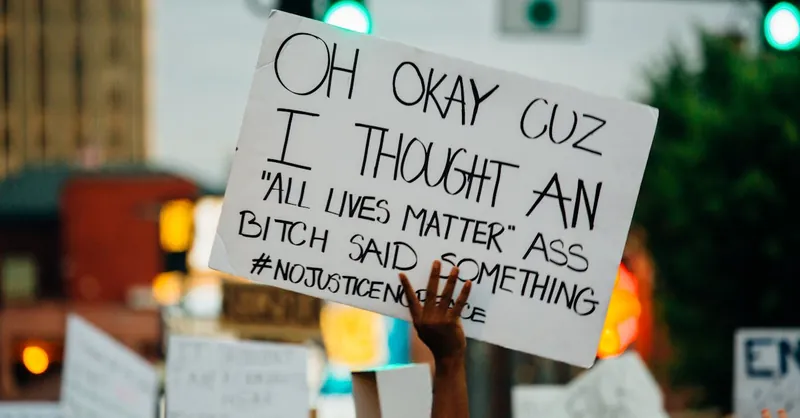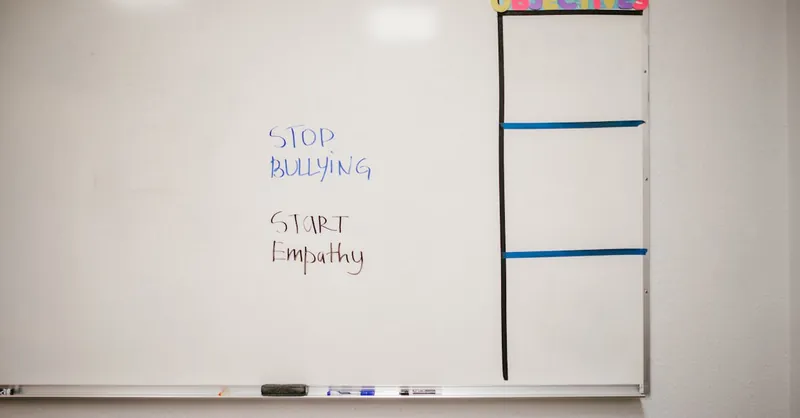Karens and Customer Service Conflicts: Unpacking Entitlement Culture
Category: Social Issues
Understanding the Karen Phenomenon in Customer Service Conflicts
If you've ever witnessed a customer service interaction spiral out of control, chances are a "Karen" was involved. You’re likely someone who’s seen the rising trend of entitled behaviors disrupting businesses and social environments alike, prompting frustration and conversations about fairness and respect. Whether you're a socially conscious reader, an employee in customer-facing roles, or simply curious about cultural critiques of entitlement, you’ve come here seeking a deeper understanding of why these conflicts arise and how they reflect broader social issues.
You’ve encountered stories or videos of Karens insisting on unfair treatment or escalating minor grievances into unjust battles. Your pain points might include a desire to identify underlying causes, societal impact, or strategies to address such behavior in daily or professional encounters. Perhaps you want to grasp the psychological and cultural dynamics fueling this phenomenon and how entitlement clashes with customer service ethics.
This post goes beyond surface-level anecdotes, offering a comprehensive analysis of Karen-related conflicts within customer service settings. We dissect the root causes, societal implications, and broad cultural commentary. By the end, you’ll see why this is more than just viral moments—it’s a window into modern entitlement and social justice struggles. Stay tuned to explore how Karens fuel injustice and what we can learn from these conflicts.
- Understanding the Karen Phenomenon in Customer Service Conflicts
- Defining the 'Karen' Archetype: Origins and Evolution in Popular Culture
- Common Traits of Karens in Customer Service Situations
- How Entitlement Drives Customer Service Conflicts: Psychological Perspectives
- Impact on Frontline Service Workers: Emotional and Workplace Consequences
- Social Justice Lens: How Karen Behaviors Reinforce Inequality and Injustice
- Viral Incidents and Media Portrayal: Amplifying or Distorting the Problem?
- Conflict Management Strategies: How Businesses and Employees Can Respond
- The Role of Bystanders and Onlookers in Escalating or De-escalating Situations
- Cultural Commentary: What Karen Conflicts Reveal About Society’s Values
- Prevention and Education: Shaping Future Customer Service Norms and Expectations
Defining the 'Karen' Archetype: Origins and Evolution in Popular Culture
To fully grasp the impact of Karens in customer service conflicts, it’s essential to define who a “Karen” really is and trace how this archetype evolved in popular culture. The term initially emerged as internet slang around the early 2010s but surged into mainstream awareness during the late 2010s and early 2020s. A Karen symbolizes a person—typically a middle-aged woman—who exhibits entitled, demanding, and often aggressive behaviors, especially when interacting with employees or service staff. The archetype encapsulates someone who insists on special treatment, disregards rules or policies, and frequently escalates minor inconveniences into disproportionate confrontations.
Origins and Social Context
The Karen stereotype draws from broader societal frustrations surrounding entitlement and privilege, particularly in Western cultures. Rooted in observations of real-life incidents where individuals misuse social power dynamics, the trope gained momentum through social media platforms like Twitter, TikTok, and YouTube. Viral videos commonly showcase Karens acting out in public spaces, demanding to "speak to the manager," or weaponizing their perceived status to intimidate others. From these documented episodes, the Karen figure has become shorthand for a pattern of unjust entitlement, systemic privilege abuse, and inconsistent social responsibility.
Evolution in Popular Culture and Media
Over time, the concept of Karen expanded beyond individual customer service encounters to embody larger discussions about racial and class privilege, gender stereotypes, and power imbalances. Media outlets and cultural commentators have analyzed Karen behavior as symptomatic of entitled consumerism and social selfishness that actively contributes to injustice and unfairness in everyday interactions. This evolution highlights how the Karen archetype serves not only as a humorous viral meme but also as a critical lens on entitlement culture—revealing intersections with issues like systemic bias, discrimination, and the breakdown of civil discourse.
Understanding the origins and cultural significance of the Karen archetype equips us to better identify and address the patterns of entitlement that disrupt customer service environments. It frames Karen behavior as more than isolated rants, exposing a troubling social trend with real consequences for fairness and respect in public life.

Image courtesy of Liza Summer
Common Traits of Karens in Customer Service Situations
When it comes to customer service conflicts, Karens exhibit a distinct set of behaviors that amplify tension and disrupt resolution efforts. Recognizing these common traits not only helps employees and bystanders identify Karen-like entitlement quickly but also sheds light on why these interactions often escalate beyond reasonable limits. While not every difficult customer fits this profile, Karens typically display a pattern of demanding special treatment, undermining authority, and disregarding social norms—all of which compromise fairness and mutual respect in service settings.
Key Characteristics That Define Karen Behavior
-
Insistence on Speaking to the Manager
Perhaps the most iconic Karen hallmark is the immediate demand to escalate issues to higher authority, often without allowing frontline staff the chance to resolve the concern. This behavior signals a refusal to accept policies, procedures, or explanations, assuming that louder or more aggressive tactics guarantee better service. -
Unreasonable Expectations and Entitlement
Karens frequently expect priority treatment regardless of circumstances—whether it be line-cutting, special discounts, or bending rules for personal convenience. Their demands typically ignore established guidelines and fairness to other customers, revealing a sense of entitlement frequently rooted in social privilege. -
Dismissive and Condescending Attitude
A Karen tends to talk down to employees, often employing patronizing language, sarcasm, or overt hostility. This degradation aims to intimidate or shame staff, reflecting a belief that their complaint inherently holds more weight and that they deserve deference. -
Disregard for Rules and Policies
Often ignoring posted policies or service terms, Karens believe that rules are obstacles meant to be circumvented rather than standards to be upheld. This includes refusing to wear masks, ignoring return policies, or demanding exceptions without merit. -
Quick to Escalate Minor Issues
What might be a small inconvenience for most becomes a major conflict with a Karen, who amplifies the problem through loud complaints, dramatized narratives, or threats to involve external authorities or social media shaming. -
Weaponization of Privilege
Many Karens leverage their perceived social, racial, or economic privilege to intimidate employees and colleagues. This power dynamic often silences marginalized voices and perpetuates systemic inequities within customer service interactions.
Understanding these traits reveals why Karen encounters are so exhausting and damaging to workplaces. They complicate conflict resolution, raise operational costs, and contribute to a toxic environment where fairness and respect become secondary to entitlement and aggression. By identifying these behaviors early, businesses and employees can better prepare strategies to de-escalate conflicts and uphold dignity for all parties involved.

Image courtesy of Antoni Shkraba Studio
How Entitlement Drives Customer Service Conflicts: Psychological Perspectives
At the heart of Karen-related conflicts lies a powerful driver: entitlement, a psychological construct that fuels unrealistic expectations and aggressive behaviors in customer service settings. Entitlement can be understood as an ingrained belief that one inherently deserves preferential treatment, regardless of context or fairness to others. This mindset not only distorts interpersonal dynamics but also escalates tensions, making routine service interactions unnecessarily contentious.
The Psychology Behind Entitlement in Karens
Psychological research identifies entitlement as a multifaceted trait, often associated with narcissistic tendencies, low empathy, and a heightened sense of personal importance. When Karens display entitlement, it manifests through several cognitive biases and emotional triggers:
-
Egocentrism: An overemphasis on one’s own needs and feelings blinds the individual to others’ perspectives, making it difficult to accept service limitations or policies. This self-centered viewpoint exacerbates conflicts because Karens perceive any inconvenience as a personal affront.
-
Expectation of Special Treatment: Entitled individuals operate with a strong belief that social rules don’t apply to them. This leads to demands for exemptions, priority service, or punitive reactions when denied, intensifying confrontations.
-
Threat to Self-Image: Customer service denials or perceived disrespect challenge the Karen’s self-worth, triggering defensive aggression. This often causes disproportionate emotional responses like shouting, insults, or public shaming tactics.
-
Lack of Accountability: A psychological refusal to accept responsibility fosters blaming others—employees, managers, or corporations—for any dissatisfaction. This blocks productive problem-solving and instead fuels blame games rooted in entitlement.
Social and Cultural Reinforcement of Entitlement
Entitlement behaviors aren’t only born internally but are often reinforced by cultural and social environments that reward assertiveness and privilege. In many Western societies, consumer culture amplifies the idea that "the customer is always right," inadvertently validating overbearing demands. Additionally, systemic inequalities and privileges—such as racial, economic, or gender-based ones—can embolden individuals to weaponize entitlement against service workers.
Key Psychological Triggers That Escalate Karen Conflicts:
- Perceived Injustice or Disrespect: Feeling undervalued triggers a defensive entitlement backlash.
- Social Modeling: Observing others rewarded for entitlement normalizes Karen-like behavior.
- Stress and Anxiety: High-pressure environments reduce patience and increase defensive entitlement demands.
By understanding these psychological underpinnings, businesses and employees can better recognize when entitlement is the root cause of conflict and develop de-escalation strategies that address not just the behavior but the mindset. This insight is crucial for transforming customer service encounters into respectful, fair interactions—counteracting the destructive spiral of Karen entitlement.

Image courtesy of cottonbro studio
Impact on Frontline Service Workers: Emotional and Workplace Consequences
The repercussions of dealing with Karens in customer service roles extend far beyond momentary inconvenience, inflicting significant emotional and professional strain on frontline employees. Service workers frequently bear the brunt of entitled, aggressive behaviors, which can lead to chronic stress, job dissatisfaction, and even burnout. Understanding these consequences is vital for businesses aiming to maintain a healthy work environment and ensure employee well-being.
Emotional Toll on Frontline Employees
Customer-facing workers subjected to Karen-like encounters often experience a range of negative emotions, including:
- Anxiety and Stress: Repeated exposure to hostile demands and disrespect elevates stress levels, reducing employees’ ability to perform effectively and impacting their mental health.
- Feelings of Powerlessness: Being undermined or ignored while enforcing company policies can cause frustration and a sense of helplessness, especially when management supports the customer's unwarranted demands.
- Decreased Morale and Job Satisfaction: Persistent confrontations with entitled customers diminish employee morale, leading to disengagement, decreased motivation, and reduced quality of service.
- Emotional Exhaustion and Burnout: The cumulative effect of managing Karen-induced conflicts without adequate support can result in burnout, characterized by fatigue, cynicism, and detachment from work.
Workplace Consequences and Broader Implications
The impact of Karen behavior on service workers also manifests in workplace dynamics and business operations:
- Increased Turnover Rates: High-stress environments contribute to higher employee turnover, costing businesses time and resources for recruitment and training.
- Lower Productivity: Stress and distraction from dealing with difficult customers impede workflow and reduce overall team efficiency.
- Toxic Work Culture: Normalizing entitlement-driven conflicts fosters a hostile atmosphere, where employees feel undervalued and unsupported.
- Compromised Customer Service Quality: Demoralized staff are less likely to deliver exceptional service, ultimately harming business reputation and customer loyalty.
Supporting Frontline Workers Against Entitlement Conflicts
To mitigate these adverse effects, companies should implement strategies such as:
- Training in De-escalation Techniques and Emotional Resilience
- Clear Policies Protecting Employees from Abuse
- Management Support and Empowerment to Deny Unfair Demands
- Providing Mental Health Resources and Stress Relief Programs
Recognizing the emotional and operational damage caused by Karen-driven conflicts not only highlights the urgent need for systemic change in customer service environments but also underscores the importance of accountability to curb entitlement and restore respect toward frontline workers.

Image courtesy of Nataliya Vaitkevich
Social Justice Lens: How Karen Behaviors Reinforce Inequality and Injustice
Examining Karen behavior through a social justice lens reveals how these entitlement-driven conflicts do more than disrupt customer service—they actively perpetuate systemic inequalities and injustices. The classic Karen archetype often leverages social, racial, and economic privilege to impose unfair treatment, weaponizing entitlement to silence marginalized voices and reinforce discriminatory power structures. In this way, Karen actions become a microcosm of broader societal inequities playing out in everyday spaces.
Entitlement as a Tool of Social Inequality
At its core, Karen behavior frequently embodies the unequal distribution of power in society. When Karens demand special privileges or exemptions, they often do so while disregarding the rights, dignities, and voices of employees—many of whom belong to historically marginalized groups. This dynamic underscores how entitlement is not just a personal flaw but a manifestation of systemic privilege, which:
- Amplifies Racial and Class Disparities – Studies show that Karens disproportionately direct hostility toward people of color and lower-income workers, echoing entrenched patterns of racial profiling and socioeconomic bias.
- Undermines Equity in Service Environments – Demands for preferential treatment erode fairness for other customers and staff, creating environments where rules meant to protect everyone become negotiable depending on one’s social standing.
- Normalizes Abuse of Social Power – By escalating minor issues into major conflicts, Karens reinforce societal hierarchies that tolerate or even reward aggressive behavior from privileged groups while policing the behavior of the less powerful.
The Broader Impact on Social Justice Movements
Karens who publicly weaponize entitlement—whether by calling authorities on innocent individuals, refusing to comply with health mandates, or leveraging their status to intimidate—contribute to systemic injustices that social justice advocates work tirelessly to combat. These behaviors:
- Perpetuate Racial and Gender Stereotypes, linking marginalized identities with criminality or incompetence.
- Divert Attention and Resources away from real injustices by framing minor service disputes as crises requiring excessive intervention.
- Hinder Collective Efforts Toward Equality by reinforcing social divisions and mistrust in public spaces.
Understanding Karen behavior through this critical framework emphasizes that conflicts in customer service are not isolated incidents but reflections of larger patterns of injustice. Addressing entitlement-driven disputes with awareness of their social justice implications is essential for fostering more equitable, respectful, and inclusive customer service environments. This approach not only protects employee dignity but also challenges the status quo of privilege-based injustice that Karens so often symbolize.

Image courtesy of Kelly
Viral Incidents and Media Portrayal: Amplifying or Distorting the Problem?
In today's hyper-connected world, viral Karen incidents dominate social media feeds and news cycles, sparking widespread attention and debate about entitlement and customer service conflicts. These widely shared videos and stories often paint vivid, sometimes sensationalized pictures of Karen behavior, contributing to public awareness but also raising questions about whether the media portrayal amplifies legitimate concerns or distorts the problem. Understanding the impact of viral content on the Karen phenomenon is crucial for discerning fact from exaggeration and for developing balanced societal responses.
The Role of Viral Content in Shaping Public Perception
Viral Karen videos typically surface when a customer’s entitled behavior is caught on camera—often featuring demands to "speak to the manager" or public confrontations that showcase disproportionate reactions. These clips feed into a growing cultural narrative about entitlement but can have complex effects:
-
Amplification of Entitlement Awareness
Viral incidents shine a spotlight on problematic behaviors that might otherwise go unnoticed. They raise public consciousness about the real challenges frontline employees face and encourage conversations about respect and fairness in service interactions. -
Exaggeration and Stereotyping Risks
Media portrayal can sometimes reduce nuanced situations to caricatures, reinforcing stereotypes that all difficult customers fit the Karen mold. This risks oversimplifying diverse social dynamics and may contribute to stigmatizing individuals unfairly. -
Clickbait and Sensationalism
In the race for views and shares, viral content may emphasize the most dramatic or humiliating moments, overshadowing the context or encouraging dehumanization of the individuals involved—both Karens and service workers alike. -
Influence on Social Media Behavior
Viral fame can incentivize some to seek out or stage Karen-like confrontations for attention, potentially worsening the phenomenon. Conversely, exposure also motivates companies to adopt clearer policies and employee protections.
Media’s Dual-Edged Impact on Customer Service Conflicts
The interplay between viral content and media narratives has led to an environment where Karen incidents are both a mirror and a magnifying glass for entitlement culture:
- Positive Impact: By exposing entitlement and abuse of privilege, viral incidents empower social critique, promote employee advocacy, and help establish new social norms that challenge unfair demands.
- Negative Impact: Overexposure risks trivializing serious systemic issues, reducing complex social justice concerns to viral entertainment or meme fodder, thus diluting meaningful discourse.
Ultimately, media and viral content act as powerful forces that both spotlight and shape the Karen phenomenon. A critical, informed consumption of these portrayals is essential to ensure that the social problems behind Karen conflicts are addressed with nuance, fairness, and constructive solutions, rather than falling victim to distortion or exploitation for clicks.

Image courtesy of Ketut Subiyanto
Conflict Management Strategies: How Businesses and Employees Can Respond
Effectively managing conflicts fueled by Karen-type entitlement behaviors requires proactive strategies that empower businesses and frontline employees to de-escalate tensions while safeguarding fairness and workplace dignity. Recognizing that Karen conflicts often stem from deeply ingrained entitlement and privilege, successful resolution hinges on combining clear policies, employee training, and communication techniques designed specifically for high-stress customer service environments.
Key Strategies for De-escalating Karen Conflicts
-
Establish and Communicate Clear Boundaries
Clearly outlining store policies and customer expectations—both verbally and through visible signage—sets a foundation that reduces misunderstandings and provides employees with authoritative backing. This transparency helps limit demands for special treatment that contravene rules. -
Empower Employees with Formal De-escalation Training
Training frontline staff in calm communication, active listening, and conflict resolution equips them to defuse aggressive behavior before it escalates. Techniques such as acknowledging the customer’s feelings without conceding unreasonable demands help neutralize entitlement-driven hostility. -
Implement a ‘Manager Support’ Protocol
Instead of automatically escalating demands to management, businesses should develop protocols where managers intervene strategically—offering measured responses that reinforce company policies and discourage manipulative "speak to the manager" tactics. This approach avoids rewarding entitlement-driven escalation. -
Use Consistent and Fair Enforcement of Policies
Consistency in policy enforcement sends a strong message that all customers are treated equally, countering entitlement by upholding fairness. Exceptions should be rare and justified to avoid opening loopholes for preferential treatment. -
Provide Emotional Support and Reporting Mechanisms
Creating a workplace culture where employees feel supported when facing abusive behavior is critical. Encouraging staff to report incidents without fear of retaliation and providing access to counseling or stress management resources mitigates burnout from Karen encounters. -
Leverage Technology and Documentation
In situations prone to escalation, discreetly recording interactions (where legal) or documenting incidents can protect employees and businesses from false claims. This also supports accountability and informs future training improvements.
Fostering a Respect-Centered Service Culture
Beyond immediate conflict responses, businesses should cultivate a culture of respect and accountability that discourages entitlement behaviors preemptively. This includes:
- Publicly reinforcing values of fairness and mutual respect through marketing and community engagement.
- Recognizing and rewarding positive employee-customer interactions to incentivize exemplary service.
- Engaging customers proactively in feedback loops to address minor complaints before they intensify.
By integrating these conflict management strategies, companies can not only reduce the frequency and severity of Karen-induced disputes but also protect employee well-being and uphold equitable service standards. Ultimately, responding thoughtfully to entitlement-driven conflicts is essential for sustaining healthy customer service environments that reject injustice and promote respect for all.

Image courtesy of Antoni Shkraba Studio
The Role of Bystanders and Onlookers in Escalating or De-escalating Situations
In many Karen-driven customer service conflicts, bystanders and onlookers play a crucial role that can either exacerbate or help defuse the situation. These individuals—fellow customers, nearby employees, or passersby—often find themselves witnessing moments of entitlement and aggression unfold, and their responses significantly influence the conflict’s trajectory. Understanding the dynamics of bystander behavior is essential for cultivating environments where entitlement is challenged constructively rather than allowed to spiral out of control.
How Bystanders Can Escalate Karen Conflicts
Bystanders who engage negatively or take sides without full context often contribute to escalating tensions through:
-
Encouraging the Entitled Behavior
Some bystanders may cheer on or validate the Karen’s aggressive demands, reinforcing their sense of power and entitlement. This validation can embolden Karens to escalate their confrontation rather than back down. -
Passive Observation and Silence
When bystanders witness abusive or entitled behavior but remain silent, it can be interpreted as tacit approval by the Karen. This lack of intervention often emboldens entitlement, allowing the disruptive behavior to continue unchecked. -
Taking Sides Based on Bias
Prejudices or assumptions about the customer or employee involved can skew bystander reactions, unintentionally inflaming conflicts by siding with the wrong party or dismissing valid grievances.
How Bystanders Can Help De-escalate and Restore Fairness
Conversely, bystanders who act thoughtfully and assertively can reduce the intensity of Karen conflicts and support equitable resolution:
-
Intervening Calmly and Respectfully
A bystander’s calm voice or gesture offering support to an employee or unbiased reminder to the entitled customer can interrupt hostile patterns and encourage de-escalation. -
Redirecting Attention or Diffusing Hostility
By changing the focus—such as engaging the Karen in a neutral topic or signaling management discreetly—onlookers can prevent further escalation and provide employees space to regain control. -
Recording or Reporting Abusive Behavior
Ethically documenting incidents (when legal) or alerting management can protect employees and deter future entitlement abuses, reinforcing accountability. -
Modeling Respectful Behavior
Demonstrating patience, fairness, and empathy in the moment sets a social standard that challenges entitlement and promotes dignity for service workers.
Empowering Bystanders as Allies Against Entitlement
Businesses and communities can empower bystanders to become positive agents in addressing Karen-like entitlement by:
- Educating the public on the harmful impact of entitlement and abusive behaviors in customer service.
- Encouraging active, respectful intervention protocols that prioritize safety and fairness.
- Promoting a culture where standing up for frontline workers is normalized and valued.
In summary, the behavior of bystanders and onlookers is a powerful yet often overlooked factor in either escalating or mitigating Karen-related customer service conflicts. Harnessing bystander influence through awareness and encouragement can shift the social dynamics from entitlement-enabled chaos toward collaborative respect and justice.

Image courtesy of Pavel Danilyuk
Cultural Commentary: What Karen Conflicts Reveal About Society’s Values
The widespread emergence of Karen conflicts in customer service settings exposes much deeper societal values and cultural dynamics than simple interpersonal disputes. These confrontations act as a mirror reflecting ongoing tensions around entitlement, power, social justice, and community expectations in modern society. By analyzing Karen behaviors through a cultural lens, we gain critical insight into how entitlement clashes with collective ideals of fairness, respect, and equality, revealing unresolved fractures in social norms.
Entitlement as a Symptom of Cultural Priorities
At the heart of Karen conflicts is a broader cultural emphasis on individualism and consumer sovereignty—the belief that personal needs and desires should take precedence, often above communal responsibility or mutual respect. This mindset is reinforced by media narratives, marketing strategies, and even customer service philosophies like "the customer is always right," which can inadvertently validate overbearing entitlement and aggressive demands. The Karen archetype thus symbolizes a cultural struggle between:
- Consumer entitlement versus social fairness: The demand for preferential treatment undermines principles of equity and shared standards.
- Individual privilege versus collective responsibility: Karens often act from positions of racial, economic, or gender-based privilege that clash with society’s growing calls for inclusion and respect for marginalized groups.
- Conflict escalation versus civil discourse: The frequent public nature of these disputes reveals weakening norms around patience, empathy, and constructive communication.
What Karen Conflicts Say About Social Justice and Accountability
Culturally, Karen conflicts also highlight society’s ongoing tension with accountability and systemic inequality. The ability for some individuals to weaponize entitlement illustrates persistent imbalances in how power and respect are distributed:
- They expose the fragility of social contracts when certain groups feel entitled to bypass rules others must follow.
- Karen behaviors illustrate how societal frustrations can manifest as microaggressions that ultimately reinforce broader patterns of discrimination and injustice.
- These conflicts prompt critical reflection on how cultural values both enable entitlement and call for greater social accountability, fairness, and respect in everyday interactions.
In essence, Karen encounters in customer service are not isolated or trivial—they are cultural signposts revealing how entitlement clashes with evolving societal values around equality, respect, and justice. Recognizing this helps frame these conflicts as part of larger social narratives, providing pathways to address entitlement not just individually but as a collective cultural challenge.

Image courtesy of RDNE Stock project
Prevention and Education: Shaping Future Customer Service Norms and Expectations
To effectively curb the rise of Karen-style entitlement and its disruptive impact on customer service, prevention and education are critical tools for shaping healthier social norms and expectations. Addressing entitlement before it manifests in conflict requires a multifaceted approach that combines public awareness, targeted training, and cultural shifts—ultimately fostering an environment where respect, fairness, and empathy become the standard rather than the exception.
Proactive Education for Customers and the Community
One of the most powerful ways to reduce entitlement-driven conflicts is through educating customers about appropriate behavior and mutual respect in service interactions. This can take many forms, including:
-
Public Awareness Campaigns
Informative initiatives—both online and in physical spaces—can highlight the consequences of entitlement, encouraging customers to approach service encounters with patience and understanding. -
Social Media Engagement
Leveraging social platforms to promote positive customer service experiences and share stories of respectful interactions can counterbalance viral Karen incidents and reshape cultural perceptions. -
Community Workshops and Forums
Facilitating conversations that explore entitlement, privilege, and social justice in customer service contexts helps build empathy and awareness, reducing ignorance-driven conflicts.
Empowering Frontline Employees Through Comprehensive Training
Investing in employee education that extends beyond conflict de-escalation to encompass entitlement psychology and cultural competence enables service workers to navigate complex interactions more effectively. Key training elements should include:
- Recognizing entitlement triggers and responding with assertiveness and empathy.
- Understanding the broader social dynamics that fuel Karen behavior, including privilege and systemic bias.
- Building resilience and self-care practices to withstand emotional stress without compromising professionalism.
Integrating Policy and Cultural Change
To truly shift customer service norms, prevention efforts must be embedded within organizational culture and policy frameworks:
- Clear, Consistently Enforced Policies communicate that entitlement behaviors will not be tolerated, reinforcing fairness for all customers and respect for employees.
- Promoting Inclusive Service Values ensures that businesses actively reject privilege-based exceptions and uphold equity, signaling to customers that fairness is non-negotiable.
- Encouraging Customer Feedback Loops creates a channel for addressing concerns constructively before they escalate into entitlement conflicts.
Through a combined strategy of education, empowerment, and policy reform, businesses and communities can proactively dismantle entitlement-driven customer service conflicts. These preventive measures not only improve frontline employee well-being but also cultivate a customer culture rooted in respect and accountability—shaping future service encounters that reject Karen-like injustice and promote fairness for all.

Image courtesy of RDNE Stock project
